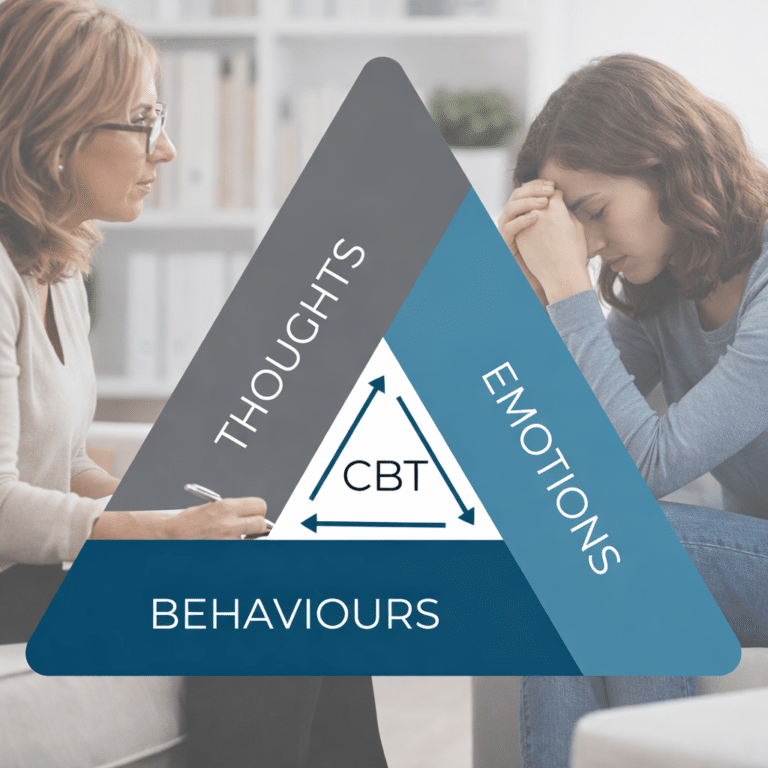Sleep Disorders and their Behavioral Impact
Maddison Henley PA-C

Sleep disorders are a significant concern for many individuals, as they can influence mood, productivity, and overall health. Insufficient sleep can lead to difficulties in concentration, memory lapses, and mood changes. What’s more, specific sleep disorders can affect our behavior significantly. Hence, it is crucial to explore this complex yet vital facet of our lives.
The Impact of Sleep Disorders on Daily Functioning

Characteristic of many sleep disorders are sleepless nights filled with restlessness and unease. This sleep deficiency can result in fatigue, distracting from productivity and mental acuity the following day. However, some sleep disorders have an even greater direct impact on our daily functioning and behavior.
The Behavioral Impact of Common Sleep Disorders
Sleep disorders are a prevalent concern in today’s fast-paced world, affecting millions of individuals globally. These disorders not only disrupt our nightly rest but also have far-reaching implications on our daily lives, impacting our mood, energy levels, and overall well-being. Below are some of the most common sleep disorders and their effects on our daily behavior:

- Insomnia: Insomnia is perhaps the most widely recognized sleep disorder. It is characterized by persistent difficulties in falling asleep, staying asleep, or waking up much earlier than desired. While many people might experience occasional sleepless nights, chronic insomnia can lead to a host of daytime problems. Individuals suffering from this condition often report increased irritability, heightened anxiety levels, and a predisposition to depression. The cumulative effect of sleepless nights can also lead to reduced cognitive function, making decision-making and concentration challenging.
- Sleep Apnea: Sleep apnea is a serious condition where an individual experiences brief and repeated interruptions in breathing while asleep. These pauses can last from a few seconds to minutes and might occur 30 times or more an hour. As a result, sufferers often wake up feeling unrefreshed and struggle with excessive daytime sleepiness. This fatigue can hinder concentration, leading to decreased productivity at work or school. Moreover, the constant disruptions in sleep can result in mood disturbances, making individuals more susceptible to mood swings and irritability.
- Restless Leg Syndrome (RLS): RLS is a neurological disorder that causes an overwhelming and often uncomfortable urge to move the legs, especially during periods of rest or inactivity. This sensation can range from a mild itch to a severe, throbbing ache. Consequently, individuals with RLS often find it challenging to get a good night’s sleep. The lack of restorative sleep can lead to increased fatigue during the day, affecting an individual’s energy levels and mood. Over time, this can contribute to feelings of frustration and depression.
- Circadian Rhythm Sleep Disorders: Our body operates on an internal clock, known as the circadian rhythm, which regulates our sleep-wake cycle. However, certain conditions can disrupt this natural rhythm, leading to circadian rhythm sleep disorders. Individuals with these disorders might find themselves feeling awake at night and sleepy during the day. This misalignment can result in fragmented sleep, making individuals feel perpetually tired. The constant sleep disturbances can also impair daytime functioning, leading to difficulties in concentration, memory lapses, and mood disorders.
Managing Sleep Disorders
Given the above, the role of sleep in maintaining our mental and physical health is evident. However, coping with these disorders is not insurmountable, with various solutions ranging from lifestyle modifications to medical treatments.

If you find yourself struggling with sleep patterns or suspect an underlying sleep disorder, it might be time to consult a sleep specialist. These medical professionals are equipped to diagnose and manage different sleep disorders, providing you with necessary guidance to overcome challenges linked to insufficient or disturbed sleep.
Achieving quality sleep is paramount to ensuring your best performance, so make adequate sleep a priority for your overall wellness. If you’re dealing with sleep issues, consider reaching out to a clinician for guidance and support. Rest assured, you’re not alone in this challenge, and there are numerous resources available to help tackle such sleep-related concerns.
Responsibly edited by AI
Other Blog Posts in
Animo Sano Psychiatry is open for patients in North Carolina, Georgia and Tennessee. If you’d like to schedule an appointment, please contact us.
Get Access to Behavioral Health Care
Let’s take your first step towards. Press the button to get started. We’ll be back to you as soon as possible.ecovery, together.




